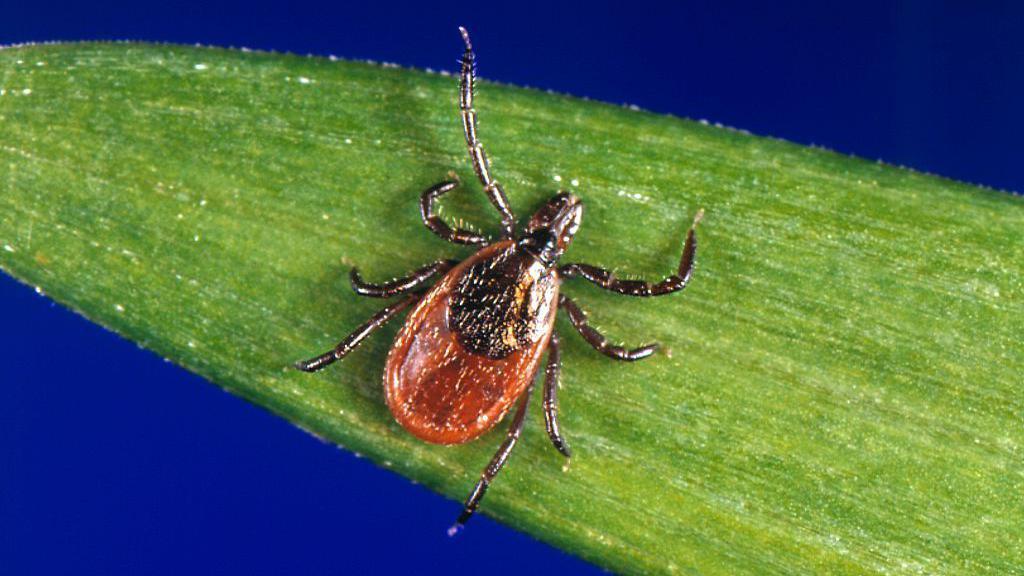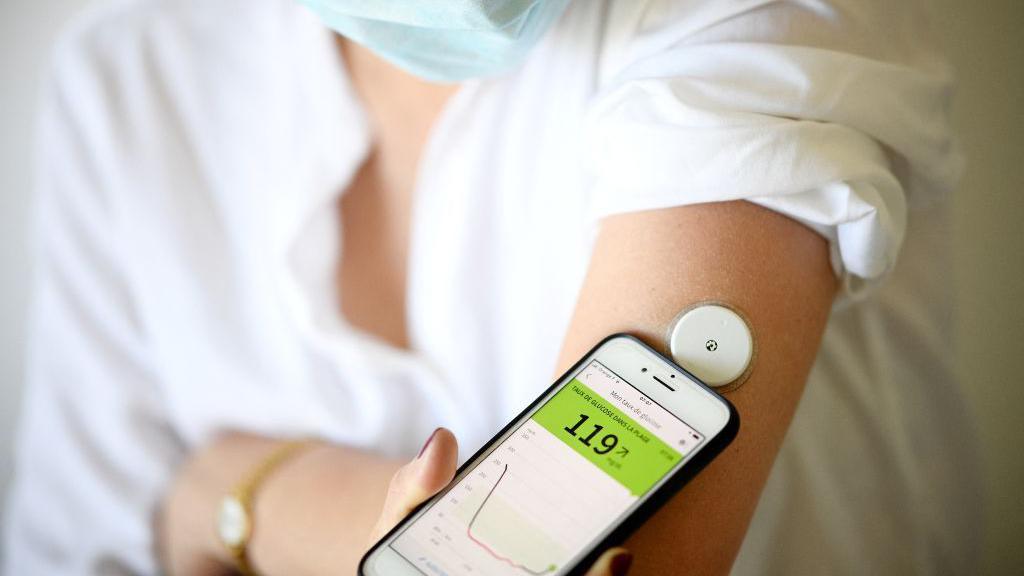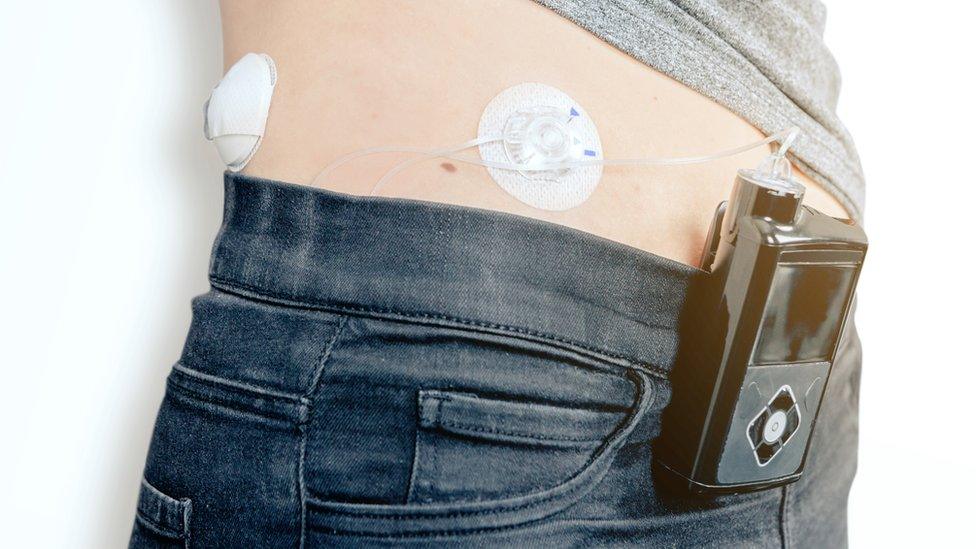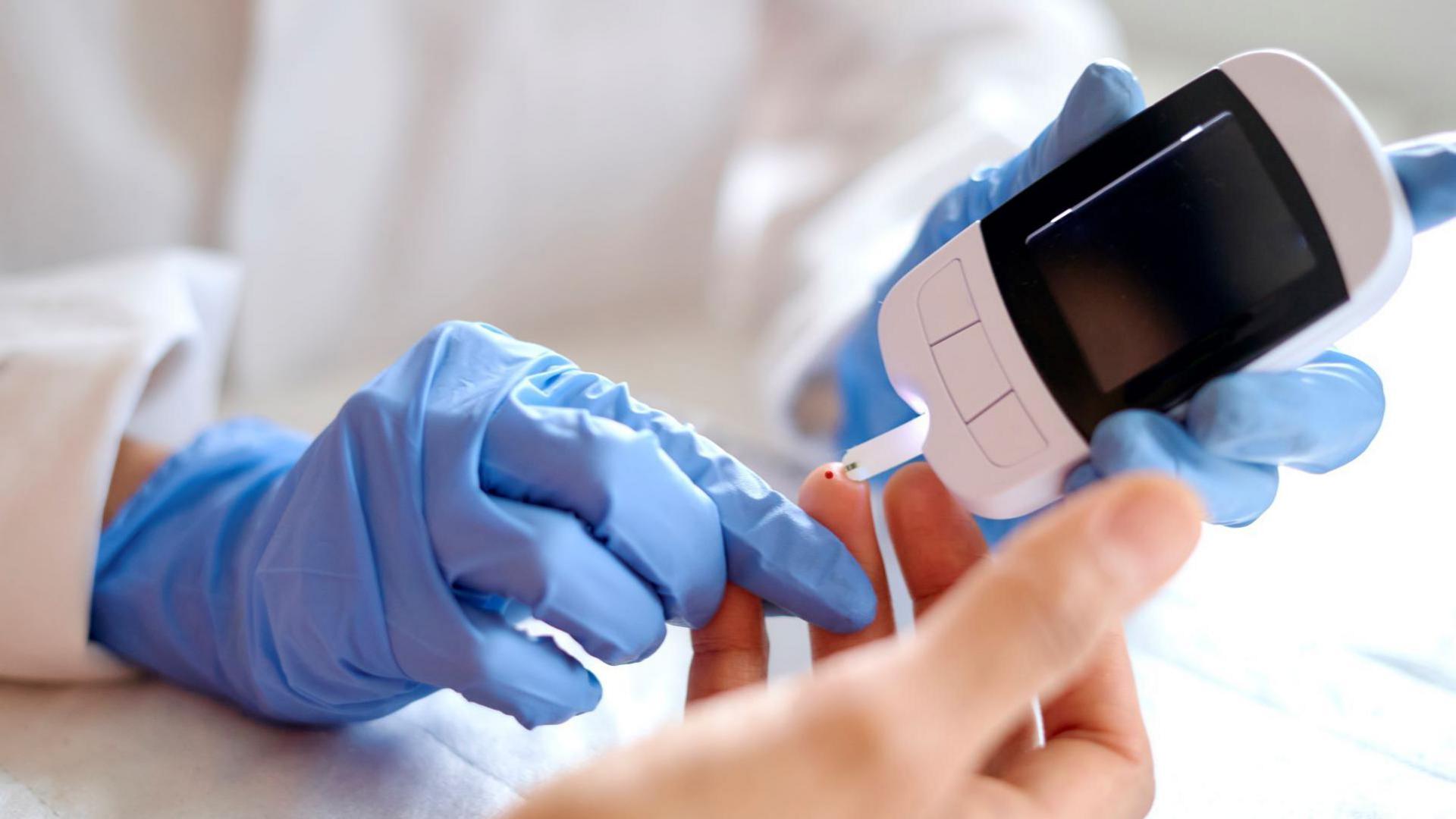How studying ticks is helping treat diabetes

Ticks have developed proteins that help them go undetected by the immune system
- Published
A trial aiming to use bugs to treat type 1 diabetes has been awarded funding.
The University of Oxford has been given a share of £2m to study whether saliva from parasitic ticks could remove the need for immunosuppressant drugs when treating the condition.
According to Diabetes UK, more than 400,000 people in the UK are living with type 1 diabetes, and there is currently no cure.
Rachel Connor, director of research partnerships at research organisation Breakthrough T1D, said the "groundbreaking" study could "pave the way" for people with the illness to not need to inject insulin.
In people with type 1 diabetes, the immune system mistakenly attacks and destroys insulin-producing beta cells in the pancreas.
So far, therapies to replace the cells come with the need for immunosuppressant drugs.
But parasitic ticks have evolved to be able to avoid being detected by the immune system.
The study will look at whether scientists can harness the power of the ticks to stop the immune system attacking replacement insulin-producing cells, removing the need for immunosuppressants.

The research could one day remove the need for blood sugar monitoring
Professor Shoumo Bhattacharya, professor of cardiovascular medicine at the University of Oxford, said the team was "very excited" to receive the funding "which could improve the success of beta cell transplants".
Dr Elizabeth Robertson from Diabetes UK described the study as "high-risk, high-reward".
"Bold, cutting-edge approaches, like [this] help us to step closer to revolutionising the way type 1 diabetes is treated and improving the lives of those affected by the condition," she said.
The research is funded by the Type 1 Diabetes Grand Challenge, a partnership between the Steve Morgan Foundation, Diabetes UK, and Breakthrough T1D.
Imperial College London, the University of Exeter and the University of Cambridge have also been given some of the £2m funding for projects related to diabetes.
Get in touch
Do you have a story BBC Oxfordshire should cover?
You can follow BBC Oxfordshire on Facebook, external, X (Twitter), external, or Instagram, external.
Related topics
- Published2 April 2024

- Published9 October 2024
